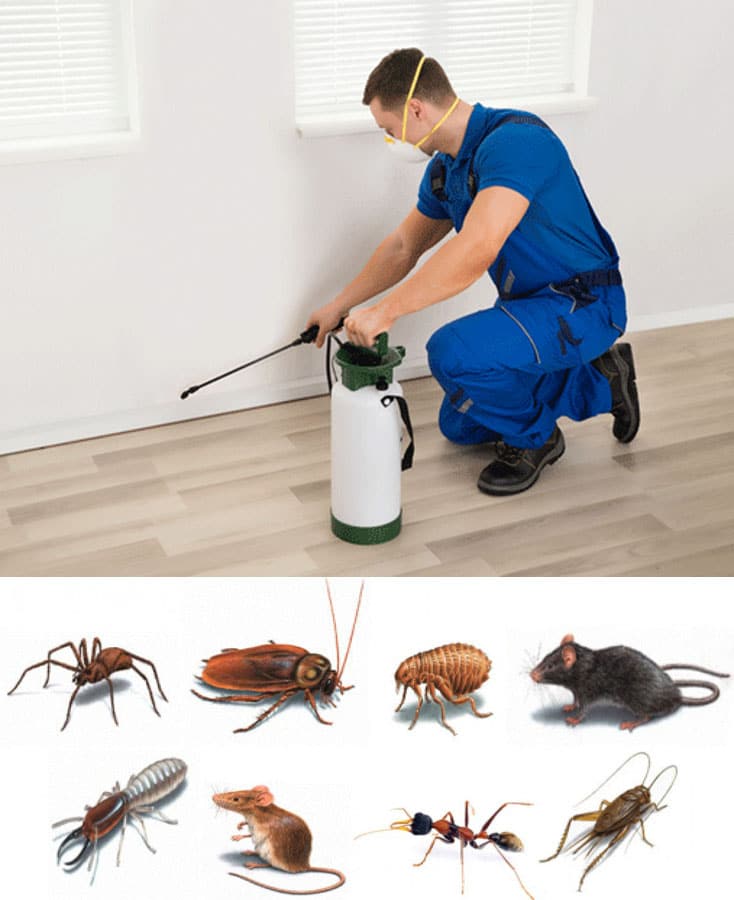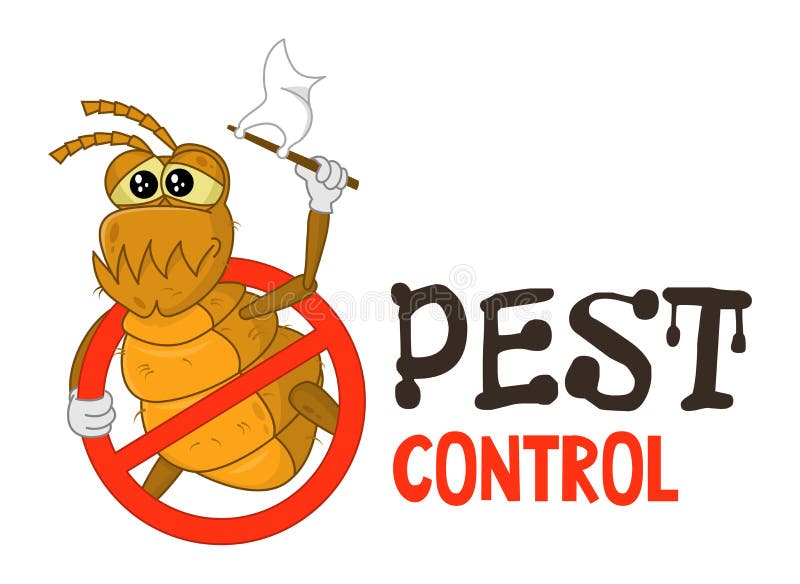Safe and Trusted Bug Control for Lasting Protection
Efficient insect administration requires a multifaceted approach that stabilizes eco-friendly stability with the requirement for efficient insect suppression. The subtleties of these techniques might not be promptly clear, motivating a more detailed exam of the methods that can lead to sustainable insect control outcomes.
Recognizing Parasite Control Techniques
Bug control includes a range of methods aimed at handling and eradicating undesirable pests and rats that can endanger both health and residential or commercial property. Understanding these approaches is critical for efficient bug administration.
The main categories of pest control approaches include mechanical, biological, and chemical strategies. Mechanical approaches include physical barriers and catches to prevent bug entry and capture undesirable species. Using screens on home windows or employing sticky traps can substantially minimize pest populaces without presenting dangerous compounds - exterminator coquitlam.

Chemical parasite control is frequently the most acknowledged technique, using pesticides to get rid of bugs. These chemicals can be efficient however need to be utilized with care to prevent negative impacts on non-target types and the atmosphere.
Advantages of Eco-Friendly Solutions
How can environmentally friendly solutions change pest control methods? The fostering of environment-friendly pest control techniques offers many benefits, dramatically enhancing the performance and safety of bug management.

An additional advantage is the positive influence on regional biodiversity. Environment-friendly solutions are created to target specific insects while protecting beneficial bugs and wild animals, promoting a well balanced ecological community. This method aligns with the expanding customer demand for lasting methods, enhancing the online reputation of bug control suppliers.
Integrated Bug Monitoring Approaches
The implementation of environment-friendly solutions naturally causes the adoption of Integrated Insect Administration (IPM) strategies, which even more improve parasite control efficacy. IPM is an alternative strategy that incorporates several methods to take care of bug populations while reducing environmental impact. This strategy emphasizes making use of biological, cultural, mechanical, and chemical controls, ensuring a balanced and sustainable approach of parasite monitoring.
One fundamental aspect of IPM is the extensive evaluation of pest task and environmental conditions. By monitoring parasite populaces and identifying their life process, professionals can execute targeted interventions that interfere with the insect's habitat or lifecycle, lowering dependence on chemical pesticides. Furthermore, social methods such as crop turning and habitat adjustment can dramatically reduce bug establishment and recreation.
One more crucial component is making use of organic control agents, such as advantageous insects or microorganisms, which can naturally subdue insect populaces. When chemical applications are required, IPM focuses on the use of low-risk chemicals and uses them precisely, minimizing direct exposure to non-target organisms and people.
Incorporating IPM methods not just improves bug control effectiveness yet also promotes a more secure community, straightening with the growing need for lasting practices in bug management.
Safe Practices for House Owners
Understanding the significance of secure practices in bug control can encourage property owners to properly manage insect problems while guarding their health and the atmosphere. Carrying out safe methods and safety nets is vital in decreasing exposure to hazardous chemicals.
Homeowners should first examine their setting for problems that draw in insects, such as standing water, food, and mess waste. Consistently cleansing and sealing entry factors can prevent bugs from invading the home. Making use of all-natural deterrents, such as vital oils or diatomaceous earth, can give efficient alternatives to chemical pesticides.
When chemical treatments are required, home owners need to select products that are especially identified as safe for household use. It is important to follow application standards meticulously to stay clear of overexposure. Using targeted therapies in locations where bugs are determined, rather than blanket splashing, can considerably lower chemical use.
Lastly, maintaining open interaction with bug control experts is essential. Home owners must ask about the safety and security of products utilized and demand environmentally friendly alternatives whenever possible. By embracing these secure practices, property owners can develop a much healthier living environment while successfully taking care of insect problems.

Tips for Long-Term Defense
Developing an insect administration approach that emphasizes long-lasting security can greatly improve the efficiency of the secure techniques formerly discussed. To achieve this, house owners must apply normal examinations of their home, concentrating on hidden locations such as attic rooms, cellars, and crawl areas. Early discovery of bug task is critical in preventing infestations from taking hold.
Additionally, keeping a tidy setting is crucial. This includes proper food storage, promptly cleansing spills, and consistently dealing with trash. These practices reduce attractants that attract parasites right into the home. Securing access points, such as cracks around doors and windows, can effectively obstruct prospective bug access.
Landscape design must also be taken into consideration; keeping plants cut and preserving a distance between vegetation and the home lessens hiding places for insects. Making use of natural deterrents, such as essential oils or diatomaceous planet, can further prevent infestations without considering severe chemicals.
Last but not least, working together with a specialist insect control solution for periodic examinations click to read more can provide an additional layer of security. These professionals can supply tailored referrals and advanced treatments, making certain that your home remains secured versus insects in the long-term.
Conclusion
Finally, secure and dependable insect control calls for a multifaceted technique that stresses environment-friendly approaches and integrated insect administration. By implementing natural deterrents, carrying out normal inspections, and preserving appropriate hygiene, building owners can substantially reduce insect populaces while shielding beneficial insects and the atmosphere. Cooperation with professional parasite control services improves the performance of these techniques, making sure customized solutions that supply lasting security and comfort against click to read future invasions.
Effective bug monitoring calls for a complex technique that stabilizes environmental stability with the requirement for efficient insect suppression. The adoption of environmentally friendly insect control techniques provides numerous benefits, significantly boosting the performance and safety and security of bug administration.The implementation visit their website of green services naturally leads to the fostering of Integrated Bug Administration (IPM) techniques, which further boost bug control efficacy. exterminator coquitlam. By keeping track of pest populaces and determining their life cycles, practitioners can apply targeted interventions that interfere with the bug's habitat or lifecycle, lowering reliance on chemical pesticides.In verdict, risk-free and reputable insect control calls for a diverse approach that stresses environmentally friendly approaches and integrated parasite management